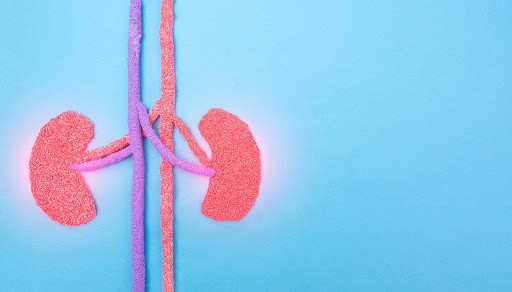
Natural Ways Herbal Diuretics Help With Your Kidney Stone Problems
A Few Facts About Kidney Stones

- Kidney stones develop when substances such as calcium, oxalate, or uric acid concentrate in the urogenital tract. They then become concentrated in the kidneys to form crystals. As the crystals grow, they enlarge into what’s commonly called “kidney stones.”
- Approximately 80% to 85% of kidney stones are made up of calcium. Other kidney stones are formed of uric acid.
- According to the National Kidney Foundation, 1 in 10 Americans can expect to have kidney stones.
- Kidney stones are most common in people between 20 and 50 years old.
What to Do When You Have Kidney Stones
Kidney stones can cause some of the most excruciating pain imaginable. And the prevalence of kidney stones in the U.S. is on the rise. Read about how kidney stones can be treated and prevented.
4 Methods for Kidney Stone Removal
Currently, there are four main methods that doctors use to remove kidney stones. The technique your doctor recommends is largely governed by kidney stone sizes.
- Shock Wave Lithotripsy (SWL): SWL is the most common way to treat kidney stones and can be used if the stone isn’t too large. It’s considered noninvasive because the doctor uses X-rays or ultrasound to locate the stone and then break it up from the outside with high-energy shock waves.
- Ureteroscopy: Without cutting the skin, your doctor uses a narrow, flexible scope passed through the bladder and ureter to locate and remove stones.
- Percutaneous Nephrolithotomy/Percutaneous Nephrolithotripsy: In these surgeries for larger stones, a small cut is made in your back or side, and the stone is broken up and suctioned out or retrieved.
- Open Surgery: Rarely required anymore, this surgery is used for very large stones, stones blocking the urine flow, or a kidney stone stuck in urethra. It’s more invasive and takes more time to recover from.
Tips to Prevent Kidney Stones and Natural Remedies
If you’ve had a bout with kidney stones, you will certainly want to avoid a second go ‘round. And if you know that someone in your immediate family has had kidney stones, you may be seeking natural remedies for kidney stones and kidney stone prevention.
Imagine passing an 8mm kidney stone—about the size of a kernel of corn, and often with jagged edges—through your ureter, a thin tube with an average 3-4mm diameter. Ouch! Even a 5mm kidney stone, the largest that can pass unaided, will cause significant pain.
Doctors often prescribe diuretics when someone is at risk for kidney stones. Diuretics (known by some as “water pills”) help your kidneys to filter excess sodium out of your body and pass it through the urine. This can help lower your blood pressure.
Fluids to Reduce Kidney Stones
It’s pretty much common knowledge that drinking a lot of water can help prevent kidney stones. And if you know much about kidney stones, you may have learned that excessive consumption of alcohol can put you at a greater risk for getting kidney stones. However, did you know that beer and kidney stones don’t necessarily go hand in hand for cause and effect? According to Bottom Line Inc., moderate consumption of beer and wine has actually been shown to potentially prevent kidney stones.
In the study quoted, these beverages could be beneficial to reduce kidney stone risk:
- Beer: Reduced stone risk by 41%.
- White Wine: Reduced stone risk by 33%.
- Red Wine: Reduced stone risk by 31%.
- Caffeinated Coffee: Reduced stone risk by 26%.
Apple Cider Vinegar
Apple cider vinegar is high in acetic acid, which is helpful in dissolving kidney stones. Besides flushing out the kidneys, apple cider vinegar is often recommended to help ease the pain caused by kidney stones.
Lemon Juice and Olive Oil
According to Urology Specialists of the Carolinas, combining and drinking ¼ cup each of lemon juice and olive oil, followed by water, can help not only with the pain of stones but help to dissolve kidney stones as well. They recommend not to add sugar to the mix.
Herbs for Kidney Stones
There are several herbs that can help prevent kidney stones. Among these are:
Basil
Everyday basil leaves contain acetic acid, which can assist in breaking down kidney stones and also help reduce pain. Using it fresh or dried as a tea drunk several times a day may help maintain kidney health. You can juice fresh basil leaves and drink it in a smoothie; however, it’s recommended not to drink it for more than six week periods as it can affect blood pressure and blood sugar levels.
Horsetail
Horsetail extract is a controversial herb for kidney stones. It can increase the urine stream, which may help to flush out kidney stones, and it has both antibacterial and antioxidant properties. However, some health practitioners do not advise its use and warn that using horsetail for longer than a month and a half can put you at risk of seizures. Also, there are many conditions like taking lithium, other diuretics, or the heart medicine digoxin, being diabetic, and breastfeeding or nursing that are contraindicated for using horsetail.
Dandelion Leaf
Dandelion leaves enjoy a widely accepted reputation as an effective and natural diuretic. Its extract significantly increases urine flow. Unlike horsetail extract, a dandelion extract is quite safe. Dandelion leaves can be made into a tea, juiced, or consumed cooked. They are also a favorite supplement for those with kidney stones.
Parsley
Another highly-endorsed herb with diuretic properties is parsley. It increases the body’s urine output, without affecting the electrolyte balance, which makes it ideal for treating edema and excess fluid retention, unlike most diuretic drugs.
An easy way to get both dandelion and parsley’s safe and powerful diuretic properties is with SuperTrees’ Dandelion Parsley Herbal Diuretic. This natural solution is made with organically sourced dandelion and parsley.
In addition to these herbs used fresh or in supplements, essential oils for kidney stones are sometimes recommended, such as oils of helichrysum, orange, lemon, fennel, lemongrass, wintergreen, and peppermint. Note that many essential oils are only to be used topically, as a massage oil for pain, rather than taken internally.
Takeaway
Given the pain that kidney stones can cause, it’s worthwhile to learn predisposing factors and healthy ways to avoid them.



I had kidney stones so my doc made an appt for surgery for the following month. Meanwhile I drank one 32 oz cup 3 times a day of horsetail tea leaves in cold or hot tea form for exactly one month. When I was being prepped for surgery on the day of my appt the surgeon decided to x-ray me and couldn’t find them. They had dissolved due to the tea I was drinking. So I was sent on my way home instead of having surgery. They were baffled.